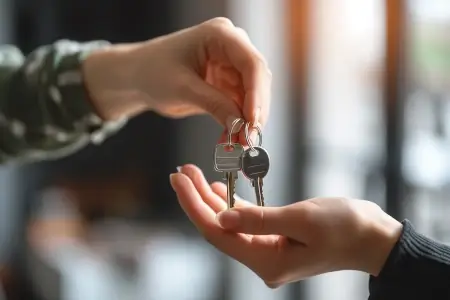Mortgage Loan Closing Meeting
As you embark on buying or selling your home. it's important to know what happens at the closing meeting. Although the closing process varies from state to state-and even within the same county or city, certain activities are standard. It is to your benefit to understand the many activities that need to occur during, and after the closing meeting.
What Happens at the Closing Meeting
The closing agent reviews the settlement sheet with you and the seller and answers any questions. Both you and the seller sign the settlement sheet.
The closing agent then asks you (the buyer) to sign the other loan documents, such as the mortgage note and Truth-in-Lending statement.
If it wasn't previously given to the lender, evidence of required insurance and inspections is also presented.
If everyone agrees that the papers are in order, you (and the seller) submit a certified or cashier's check to cover the closing costs and the balance of funds due (if applicable).
Then, the check from the lender covering the mortgage amount is submitted to the closing agent. If the lender will be paying your annual property taxes and homeowner's insurance for you, a new escrow account (mortgage impound account) is established at this point.
You receive the keys to your new home.
After the meeting, the closing agent officially records the mortgage and deed at your local government clerk's office or registry of deeds. This legal transfer of the property may take a few days.
The closing agent usually will not disburse the funds to everyone who is owed money from the sale until the transaction has been recorded. It is at the point of deed recordation that you become the official owner of the home.
If you live in an area where there is not a formal closing meeting, an escrow agent will process the paperwork, arrange for all documents to be signed, and collect and disburse the required funds. This step in the process is called closing of escrow.
Mortgage Loan Closing Costs

No later than three business days after your loan application was received, your lender should have delivered or mailed to you a "good-faith estimate" of the total charges due at closing and a copy of the government publication "Settlement Costs: A HUD Guide".
One business day before the closing meeting, your closing agent must allow you to review a copy of your two-page settlement form-called the HUD-1 Settlement Statement.
The good-faith estimate is based on the lender's typical loan origination costs for the area in which your home is located. So the estimate usually changes between application and closing and will show the actual amount of money you'll need to bring to closing.
Remember that you'll need to pay your closing costs in the form of a certified or cashier's check. Personal checks usually aren't accepted. Closing costs vary widely depending a variety of factors, including price and location.
Overall, you can expect your closing costs to amount to between 3% and 6% of the sales price. Your lender, real estate sales professional, and closing agent will be handling many pre-closing activities, but you still need to be aware of them and know who typically arranges and pays for each activity.


